NSF
-
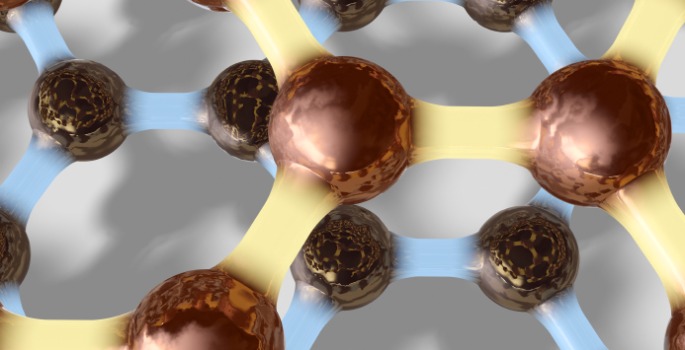
Barrier to faster graphene devices identified and suppressed
Vanderbilt physicists report that they have nailed down the source of the interference inhibiting the rapid flow of electrons through graphene-based devices and found a way to suppress it. Read MoreMar 13, 2012
-
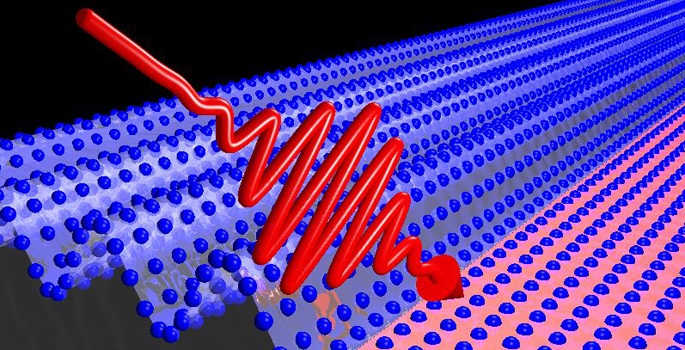
Ultrafast sonograms shed new light on rapid phase transitions
A method for taking ultrafast "sonograms" of materials undergoing phase transitions sheds new light on the dynamics of this important phenomenon in the world’s fastest phase-change material. Read MoreMar 7, 2012
-
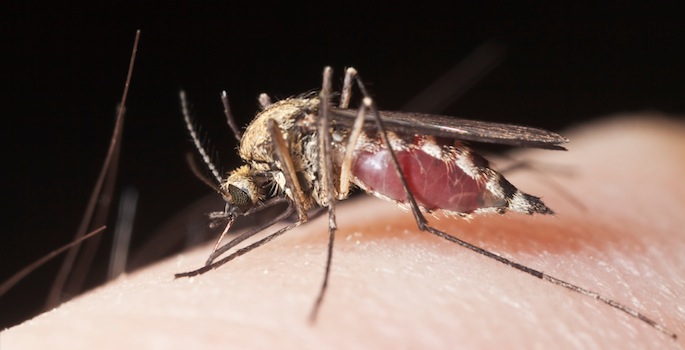
Science Nation: New mosquito repellant could be frightening…for mosquitoes
http://www.nsf.gov/news/special_reports/science_nation/nosingoutmosquitoes.jsp Read MoreMar 6, 2012
-

App turns tablet into math aid for visually impaired students
A mechanical engineering graduate student has created an app that turns Android tablets into an educational aid for teaching mathematics to visually impaired students. Read MoreMar 5, 2012
-
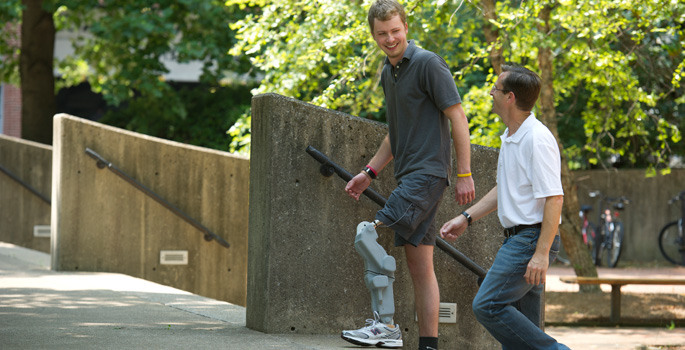
National Science Foundation: Bionic leg makes amputee faster on his feet
Two years after losing his leg in a shark attack, Craig Hutto became the test pilot for a unique and powerful new prosthetic leg being developed by mechanical engineer Michael Goldfarb and his team at Vanderbilt University. Read MoreJan 24, 2012
-
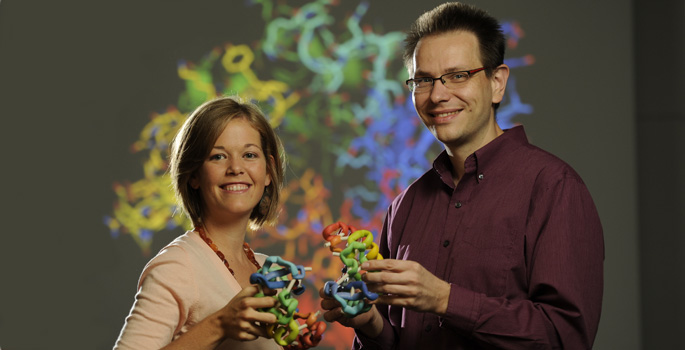
Creation of the largest human-designed protein boosts protein engineering efforts
A team of Vanderbilt chemists have designed and successfully synthesized the largest artificial protein using a new approach that greatly expands scientists’ ability to create proteins unknown in nature. Read MoreNov 15, 2011
-
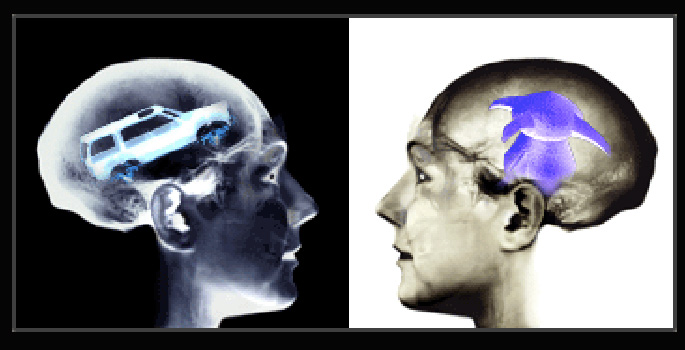
NSF renews grant for scientists who study how the brain acquires visual expertise
A network of scientists who study how the brain acquires visual expertise has received a five-year renewal of support from the National Science Foundation. Read MoreNov 3, 2011
-
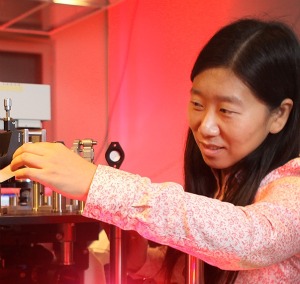
Yaqiong Xu receives NSF career development award
Electrical engineer and physicist Yaqiong Xu has received a prestigious career development award to study a new class of molecules called nanobiohybrids. Read MoreOct 25, 2011
-
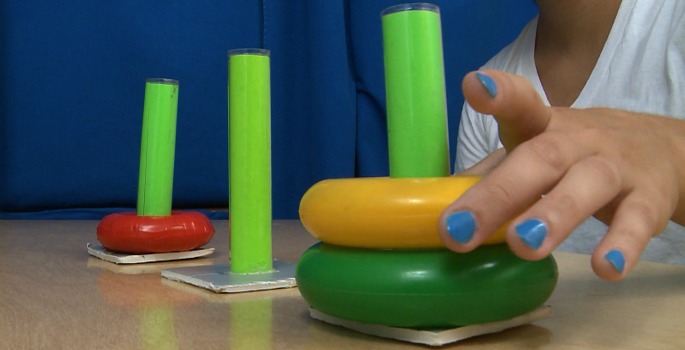
Social audiences disrupt ‘learning by teaching’
The "Tower of Hanoi" task (Courtesy Dan Levin) “Learning by teaching,” a method in which teaching facilitates the tutor’s own understanding, may be improved when the audience is not human, new research from Vanderbilt University’s Peabody College finds. The study, based on research that suggests a person learns… Read MoreOct 19, 2011
-

Discoveries show value of federal support
An update on federally funded projects at Vanderbilt and their impact on efforts to improve education, protect people from disease and meet our nation’s energy needs. Read MoreOct 13, 2011
-
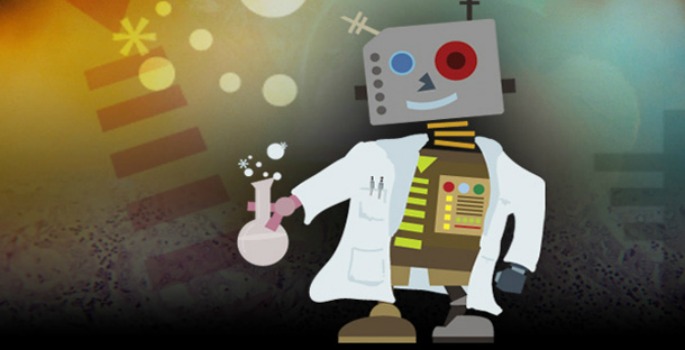
Robot biologist solves complex problem from scratch
A team of scientists has taken a major step toward developing robot biologists. They have shown that their system, the Automated Biology Explorer, can solve a complicated biology problem from scratch. Read MoreOct 13, 2011
-

Computer scientist: reveal thyself!
(iSTOCK) Like the Wizard of Oz, computer scientists have largely been happy to perform their magic behind the curtain, out of public view. However, this reticence has begun causing problems in the digital realm. “Computer scientists face the drawbacks of lacking public awareness,” wrote an international team… Read MoreSep 16, 2011
-

New insight into impulse control
How the brain is wired to control impulsive behavior differs significantly from what psychologists have thought, new research finds. Read MoreAug 30, 2011
-
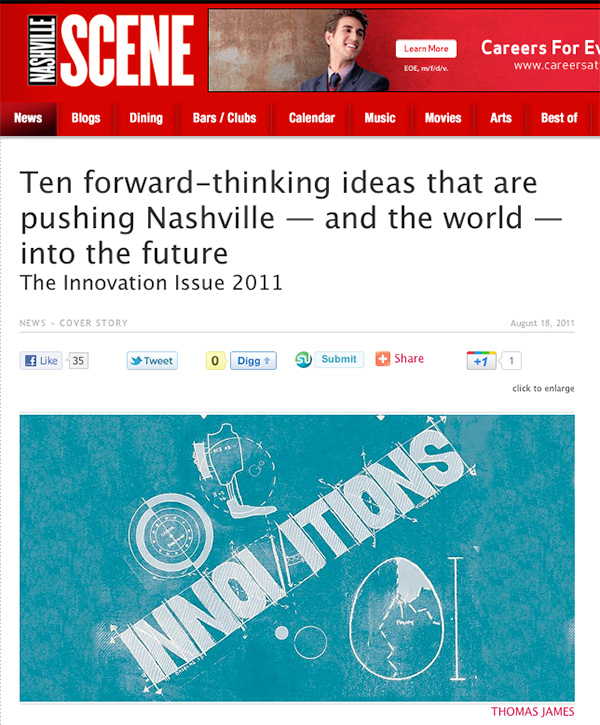
Nashville innovations
Last week when the Nashville Scene’s annual Innovations Issue hit the newsstands, three of its ten “forward-thinking ideas that are pushing Nashville – and the world – into the future” came from Vanderbilt. The three campus projects that impressed the Scene editors were: Digging for Drugs:… Read MoreAug 23, 2011
-

New ‘bionic’ leg gives amputees a natural gait
A new lower-limb prosthetic uses the latest advances in computer, sensor, electric motor and battery technology to give it bionic capabilities. Read MoreAug 17, 2011
-
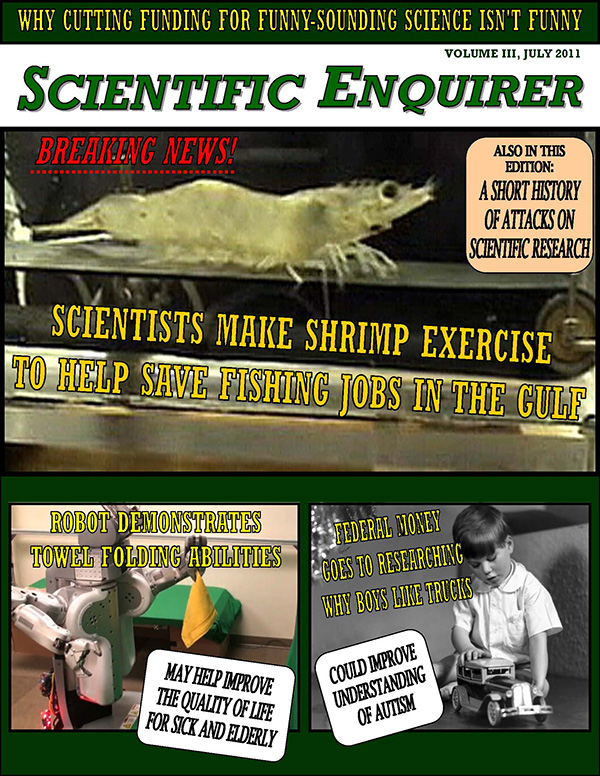
Defending funny-sounding science
It’s easy to make fun of things you don’t understand. That is particularly true of scientific research. In fact, making fun of federally funded science projects has become an unfortunate political tradition. The Association of American Universities has taken up the challenge of defending publicly… Read MoreAug 9, 2011
-

Memories may skew visual perception
New research from Vanderbilt University indicates images held in our working memory may skew perception of current events. (iStock) Taking a trip down memory lane while you are driving could land you in a roadside ditch, new research indicates. Vanderbilt University psychologists have found that our visual perception… Read MoreJul 19, 2011
-
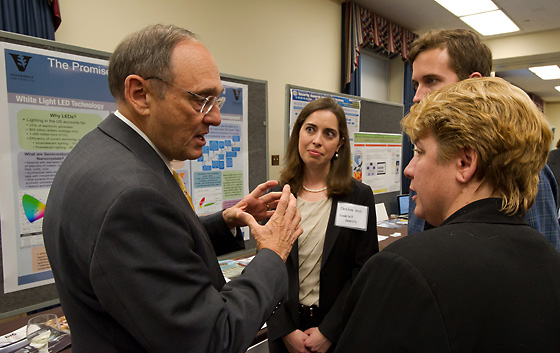
Prof. Rosenthal goes to Washington
Representative Phil Roe (R-TN) chatting with Prof. Sandra Rosenthal, front, graduate student Scott Niezgoda and Christina West, assistant vice chancellor of federal relations, in Washington D.C. at the 17th annual CNSF Exhibition & Reception. (David Scavone) Last Wednesday, Sandra Rosenthal and Scott Niezgoda accepted the invitation… Read MoreMay 13, 2011
-
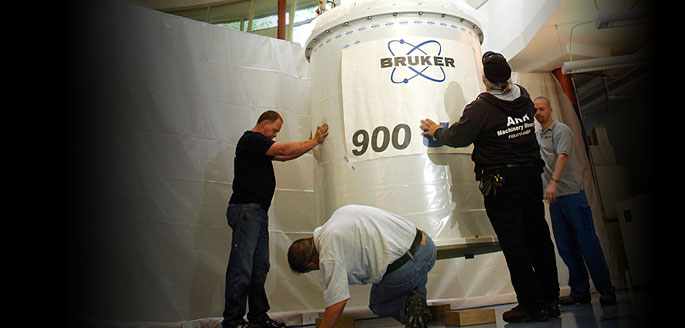
Powerful NMR magnet a boon to research at Vanderbilt University
Vanderbilt University’s acquisition of a 900 megahertz nuclear magnetic resonance (NMR) spectrometer will accelerate studies on cancer and Alzheimer’s disease. Read MoreMay 13, 2011
-

New global portal for cyber-physical systems research launched
Chris VanBuskirk (Steve Green / Vanderbilt) Vanderbilt’s Institute for Software Integrated Systems (ISIS) has built and will operate a Web-based collaboration platform for the new National Science Foundation-funded Cyber-Physical Systems Virtual Organization. The CPS-VO aims to bring together researchers, educators and students working in academics, industry and… Read MoreApr 14, 2011